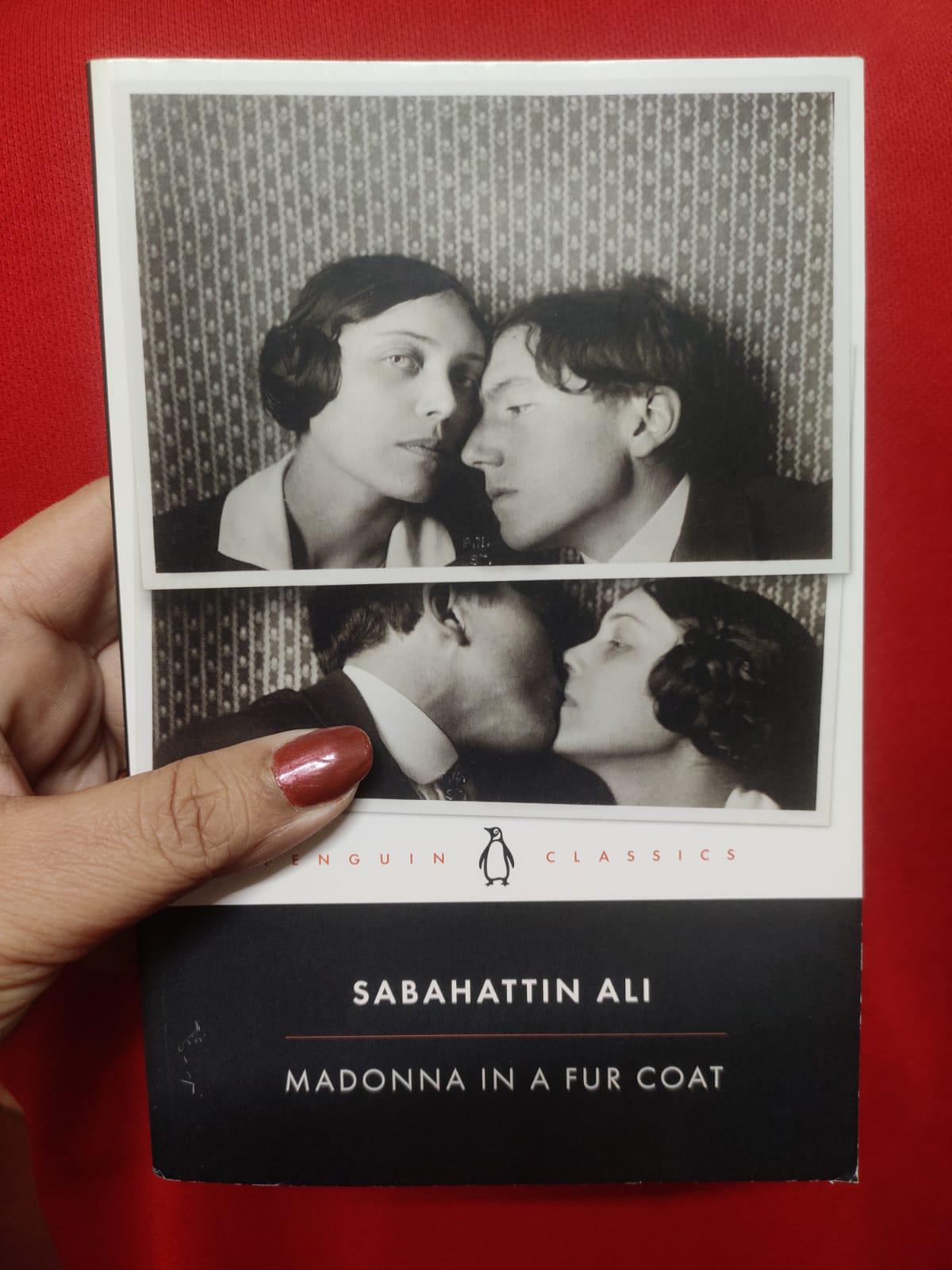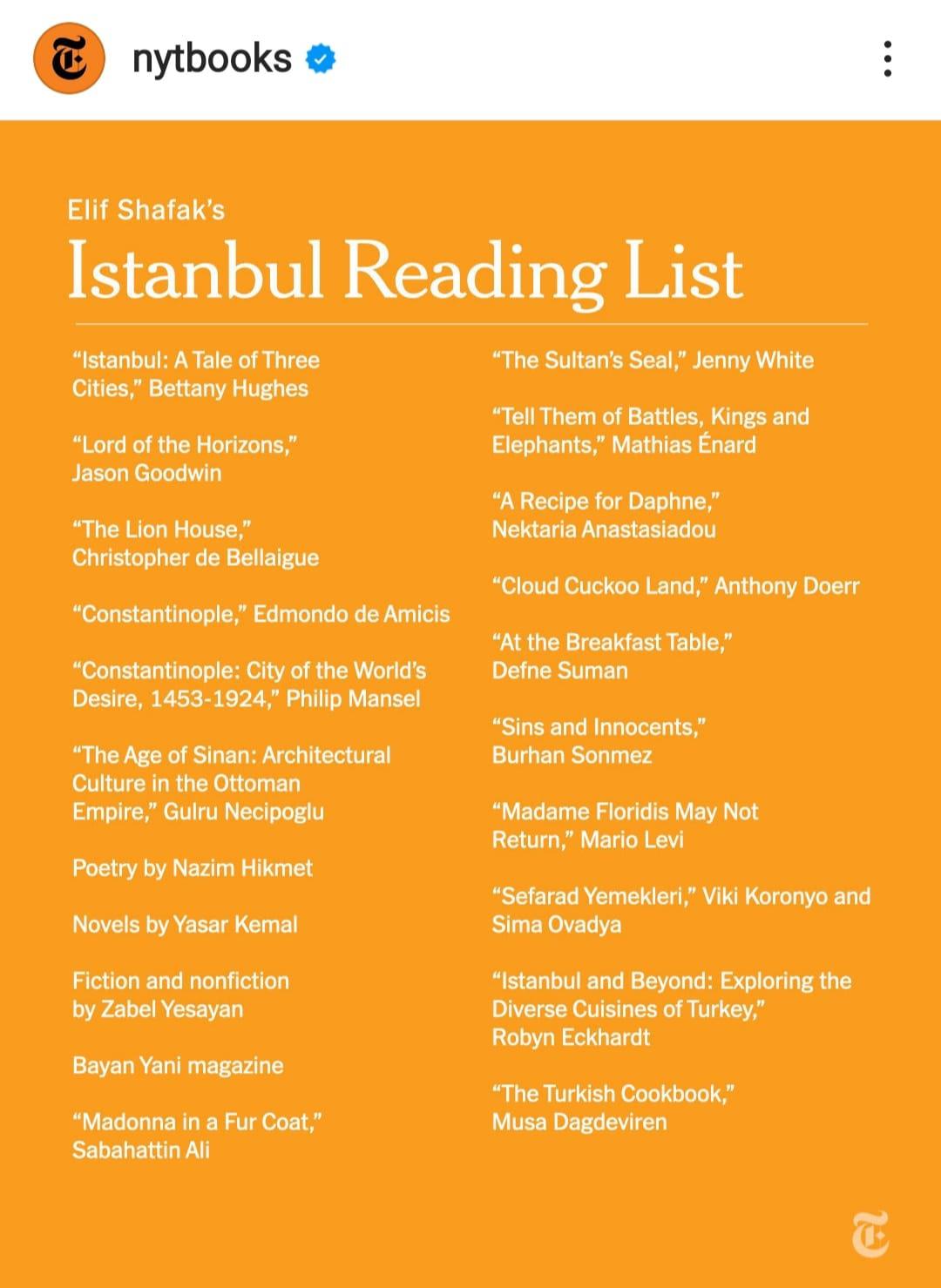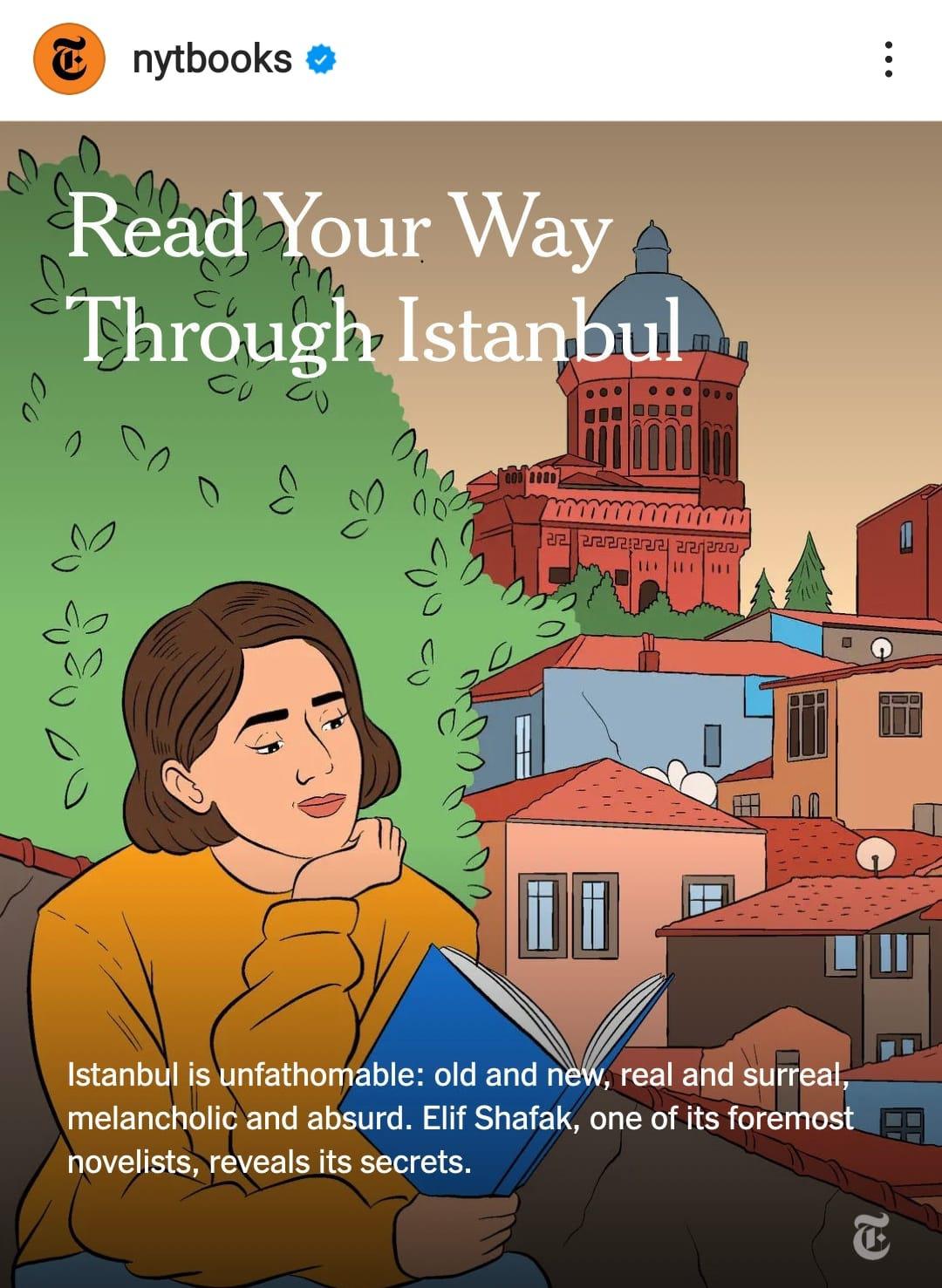Madonna In A Fur Coat: Sabahattin Ali
Book Review by:- Sunheri Sufi
In June 2022, NYT Books (which is all things books from The New York Times) started a travel literary guide feature, ‘Read Your Way around the World”. A wonderful concept that zeroes in on the idea that one of the best ways to learn about a locale is through its literature. In the column, noted authors provide literary guides to their cities, including book recommendations that capture a sense of everyday life and the local cultural landscape.

The November column carried the recommendations on Istanbul (Turkey) by the very successful author Elif Shafak. The tagline on the post was: “Istanbul is unfathomable: old and new, real and surreal, melancholic and absurd”. Oh boy, I was hooked! I read through her list and the first thought that came to my mind was “But where is Orhan Pamuk? “. Similar questions were raised by other readers too! I went ahead and discussed this with my online book club friends and we came to the conclusion of what NYT Books has sought to create—that the feature is not a definitive anthology of essential reading but more of a thoughtfully crafted personal guide—so it was bound to be subjective.
The recommendation which leaped at me was ‘Madonna In A Fur Coat” because of its very unusual and intriguing title. Then, I read the author’s name –Sabahattin Ali—it had such a beautiful sound and resonance to it as I said it aloud. Ordered it at that instant (uh- uh I am pretty fanciful) Amazon delivered it the next day at 5 pm and by 10 pm, I was through with it.


Yes, the book is that gripping. You can’t put it down!
The excellent introduction by David Selim Sayers helped me to get to know the author hitherto unknown to me. ‘ As an author, Ali left an enduring mark on the world of Turkish letters, with his myriad non-fiction articles, a treasure trove of short stories and poems, and his three novels. As a person, he was perhaps best remembered for the ceaseless hope, indefatigable passion, and impish sense of humour with which he embraced life. This particular book is a romantic, love story and is considered to be autobiographical. It surprised many because Ali’s other works are political and his courageous dissident writings against state oppression, ultimately led to his tragic death. It was first published in Istanbul in 1943 and was not given much attention. The literary establishment also chose to ignore it although the book gained rapid popularity by word of mouth and being passed from friend to friend. Even Sabahattin Ali’s admirers were miffed with this aberration and didn’t know quite what to do about the book which they categorized as something that teenage girls would fawn over. But suddenly, it became more widely read than Orhan Pamuk in Turkey! People loved the book and wept when they read it. Why did a little-known 1940s novel become Turkey’s bestselling book? Maureen Freely, the book’s translator, believes that it is because Ali refuses traditional gender roles, and offers hope in an increasingly restricted society.
The narrator in the book is a young clerk at a factory in Ankara who forms an unusual friendship with his office-mate, the company’s interpreter of German documents, Raif Efendi. We are shown that Raif is an average person with no distinguishing features: He is working at an average job and living an average life. Raif rarely speaks to anyone, including his family. It appears that while being extremely self-effacing, he even endorses the ridicule and sarcastic jibes thrown mercilessly at him. After several months of a fragile friendship, Raif becomes ill and asks the young clerk to retrieve his journal from Raif’s locked desk at the factory. The narrator yearns to discover more about the introverted man he’s worked beside and begs to read the diary. What he learns from the pages, handwritten decades earlier astounds him and stays with him for life. He realizes that Raif is an ordinary person, but one who has experienced an extraordinary passion — the frigid loneliness of isolation, the exquisite joy of love, and the paralyzing grief of loss. An avid reader, Raif craves learning a new language and experiencing the lives of the Europeans he’d read so much about. Sent by his father to learn soap making in Berlin, he spends his time walking, exploring, and gleaning insight into German culture. But just as in Turkey, he is totally alone. Then Raif happens upon an art exhibit and is transfixed by the painting “Madonna in a Fur Coat,” a self-portrait of a beautiful woman wrapped in white fur. He is hypnotised by her beauty and the strength of her expression.
Day after day, he goes to the gallery and keeps staring at her magnificent portrait for hours together, developing a strong spiritual attachment to the mysterious woman in it. One night, Raif suddenly catches a glimpse of this Madonna on the street and follows her to the nightclub where she is a singer. As he looks on while she is performing, she surprises him by coming and sitting at his table, beginning an unusual relationship. The woman, Maria Puder is unlike any that Raif has ever met. She is fiercely independent and skeptical about all men in general. However, Raif’s naiveté gives her a sense of trust and comfort and soon they become inseparable. Is it love or just an intimate connection between friends? After months of one never being without the other, two tragedies come between them and test their devotion. Lost in a sea of mishap and misunderstanding, they may never find each other again.
Ali’s style is so simple and lucid that readers ( I did for sure) will feel as if they are living the life of Raif Effendi themselves! I agonized over the monotonous and lonely life of Raif Efendi, cried at his desperate alienation, rejoiced in his happiness upon finding a person who understands him so completely, and felt the grief /pain and resentment caused by a classic, ironic misunderstanding. The author poignantly weaves a tragic story of loneliness, unrequited love, and gut-wrenching grief which translates into existential angst and deep spiritual isolation.
Rated 5 *.
Please do read it, guys.
I will sign off here with the words of David Selim Sayers (Paris Institute for Critical Thinking): I would never have thought that this small, unassuming book could continue to reveal new meanings, like a flower blossoming in slow motion, almost a century after its conception.
Comments (4)



